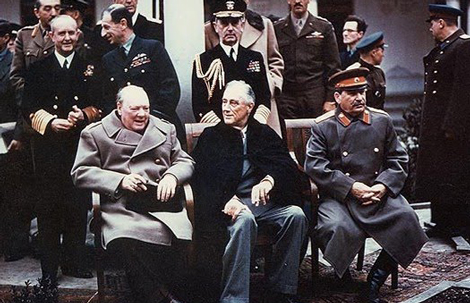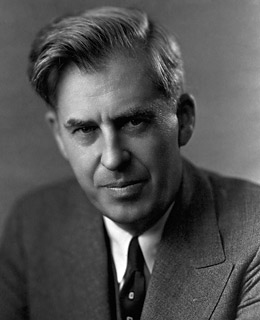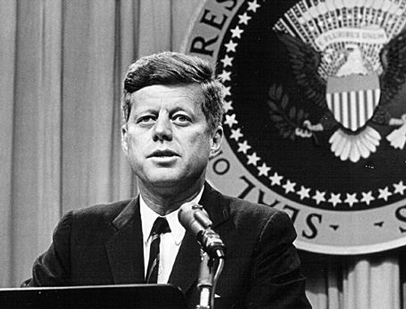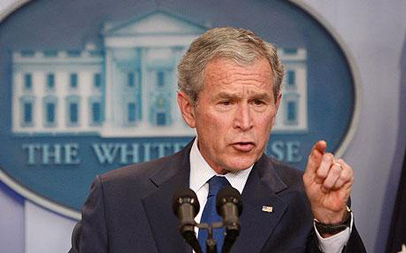Reviewed by Glenn Erickson
Lord have mercy on an honest history teacher these days, as everybody in the country seems intent on having their personal values dominate the 'version' of history being told. Back in public school we received a set of historical value judgments that I freely admit I never questioned until adulthood: Lincoln fought the Civil War to free the slaves, the Alamo freed Texas from Mexican tyranny, America never started a war and never lost a war. Now we know better.
Oliver Stone courted controversy twenty years ago when he riled conservatives with JFK, an emotionally striking but factually speculative fiction claiming that John Kennedy was assassinated by a secret conspiracy within our government. JFK mostly served to add more confusion to a subject that didn't need any. Stone fared much better with his Nixon, a subject with fewer unknowns -- we were forced to remember some of the good things accomplished by I-am-not-a-crook.
With historian Peter J. Kuznick and screenwriter Matt Graham, Stone has assembled Untold History of the United States to, in his own words, counter the Official History of the U.S. and the world since WW2. It's basically the World According to Stone. Everything presented is factual, but interpretation is everything. The show is broken up into ten one-hour chapters, the titles of which pretty much tell the tale.
World War II: Roosevelt, Truman & Wallace
The Bomb
The Cold War: 1945-1950
The '50s: Eisenhower, the Bomb & the Third World.
JFK: To the Brink
Johnson, Nixon & Vietnam: Reversal of Fortune
Reagan, Gorbachev & the Third World: Revival of Fortune
Bush & Clinton: Squandered Peace - New World Order
Bush & Obama: Age of Terror
Untold History is exciting, thought provoking, and packed with dangerous truths. Ten hours of history sounds like a life sentence, but I soon found myself soaking up the episodes in three-hour sessions. Not all of the editing is inspired but the show communicates its ideas with great efficiency. To illustrate a point Stone occasionally cuts to a brief scene from a movie. The clips remind us that the ideas he's bringing up aren't radical -- they're reflected in movies most of us respect, like Mr. Smith Goes to Washington.

Stone's avalanche of facts is presented in a remarkably clear manner. There are no talking-head interviews, just Stone's narration, which is a surprisingly easy listen for long periods of time. Most of the film clips that pop up make a specific point without distracting the viewer too much: For Whom the Bell Tolls, Seven Days in May. The only Stone movies I saw clips from are Salvador and a bit of Platoon.
Untold History's interpretations seem radical because they differ so much from the Official Story. The voiceover script does not become argumentative, engage in emotional attacks or showboat any grand liberal theories. The writers make their case with a cause-and-effect progression of facts -- every major historical event, crossroads or debacle comes down to a convergence of previous conditions, political forces and the specific personalities of people in power. So much heady content is covered that it's not possible to describe the film's scope without writing a lengthy outline.
Most of what we hear is what any casually informed person should already suspect. The 'noble' aspects of WW2 faded as soon as the Allies began making joint deals, side deals and secret deals to vacate their promises of independence to former colonies. The perfidy involved in this all but guaranteed the proliferation of dozens of more wars that continue to this day.
Stone is perhaps too easy on FDR. He comes down hard on Truman, who is described as a vision-less bureaucrat that allowed hardliners to shape his foreign policy, igniting the Cold War. The show also seems far too lenient with the Soviet Union, if only because we are accustomed to Russia being so thoroughly demonized. Again and again we're told that Stalin's overriding concern is only security, when the USSR naturally sought the same kinds of overseas influence we did. Stone asserts that Truman, England and eventually NATO responded by ringing Stalin's borders with offensive weapons. Stone's thesis is fascinating, but it doesn't convince me that Stalin and his cohorts were quite so innocent.

Oliver Stone conveys an awe of great men who almost changed history. The forgotten Henry A. Wallace served as FDR's penultimate VP. This genuinely visionary and ideologically tolerant man is portrayed as a potential national savior crucified by conservative zealots. His possible postwar leadership is the first of several "what if" opportunities that Stone says could have sent history on a gloriously different path - no Hiroshima, no Cold War. It's difficult to imagine that happening, frankly. As presented in Stone's own docu, Wallace doesn't seem tough enough to survive Washington's dirty political infighting. Predictably, Democratic politicos shoved Wallace aside in '44 in favor of Harry Truman, who later slurred him as a communist and edged him out of politics altogether. Stone may be overly optimistic about Wallace... could the man have prevented the country from becoming a militarist stronghold?
Stone does proffer convincing verdicts for some hot-topic arguments. His reasoning for exactly why Hiroshima and Nagasaki were atom-bombed is very compelling. Later on we seriously considered dropping atom bombs in several other situations, and came very close in Korea. According to the evidence presented here, America's atomic stance has been aggressive from the start, with the threat of nuclear bombs implicit in many of our 'peaceful' diplomatic negotiations. We achieved and for years maintained an overwhelming military domination; at times the only thing holding back the militarists was American public opinion. General Le May openly stated that he wanted us to launch first and start a nuclear war.
Stone's coverage of the McCarthy period also puts things in perspective. We film people talk endlessly about the effect of the blacklist on Hollywood, but Untold History's wider view shows how the witch hunts intimidated reasonable voices in the government. McCarthy spent half his energy trying to blame the State Department for the Communist victory in China. Although we were the most secure country in the history of the world, our national policy was built on fear of an overstated foreign threat. "We became a nation of stool pigeons."
Eisenhower gives the country relative peace for eight years, but turns the country into an armed camp. He set the C.I.A. loose on Latin American and played politics with the Civil Rights movement, allowing the FBI to harass black leaders. When Ike is shown shaking hands with Spain's Fascist Generalissimo Franco, Stone cuts to a photo from years earlier, of Franco shaking hands with Adolf Hitler. It doesn't play like a cheap shot, but instead proves that ideals mean nothing in grand political strategies.
Stone criticizes John F. Kennedy before canonizing him as the last great hope for American sanity. After depicting JFK as a confused mix of corruption and conflicting values, the show presents evidence indicating that he definitely planned to take the country in an anti-militarist direction, ending the struggle with Moscow and withdrawing from Southeast Asia. The suggestion that a government conspiracy resulted is much more compelling her than in Stone's movie JFK.

By the time of Vietnam the Untold History of America is awash in official lies. Fake provocations are invented to justify wars. Presidents get elected by promising to end a war, only to reverse course once in office. Perhaps Untold History isn't radical enough -- what seems abundantly obvious is that the country's foreign policy has been run from the Pentagon, and that each new Chief Executive goes along with it one way or another. Although Stone doesn't chase conspiracy theories, it doesn't look as if Bobby Kennedy was going to play ball with the war machine.
Dick Nixon's high crimes and misdemeanors aside (!), many of his domestic policies were important extensions of The New Deal and Johnson's Great Society. Jimmy Carter is an admirable man but his record in office is pretty painful. Stone reserves his most scathing criticism for Ronald Reagan and pretty much every president to follow, including Obama. According to Stone's read of history, Reagan is such an inflexible cold warrior dullard that he can't even see that Gorbachev's peace signals amount to a flag of surrender. The notion of American Exceptionalism turns wholly obscene, without even a pretext of justification, when the NeoCon movement not only advocates, but puts into action a plan to invade and take over the entire Middle East. George W. Bush then tells us that the reason we get attacked is because "terrorists hate our Freedoms."

Stone does not call his show Untold History because it promises 'shocking' new revelations, as might a TV reality program. The Story is "Untold" because for the last seventy flippin' years we've been sold an inadequate history of face-saving prevarications, obfuscations and outright lies. That's another film clip that Stone didn't use: Burl Ives from Cat on a Hot Tin Roof shouting, "There's a HEAP of MENDACITY goin' on here!"
Is the Untold History of the United States something that a majority of Americans might find persuasive? Stone emphasizes the strength of America's avowed values, our individual morality and the promise of our potential for good. His conclusion that the key to success is in understanding the past is more than a platitude. The show isn't going to appeal to viewers that insist on defining everything American as naturally righteous or morally virtuous. I certainly had doubts about some things in it. But Oliver Stone's show made me question my own set beliefs, and challenged me to have a more open mind.
Warner Home Video's Blu-ray of Untold History of the United States is a perfectly encoded four-disc set. The image quality is always tops, with excellent-quality film clips of famous speeches, newsreels and relevant ads and other sources. If it's relevant, we see it, as with LBJ's Orwellian Daisy Girl campaign commercial that clobbered Goldwater. Images and speeches from the Gulf and Iraq Wars show up that haven't been seen much, as if casually suppressed -- mostly Presidential speeches claiming that the government would never do things that soon became normal policy. The show does not toss gratuitous war atrocity images at us, even though doing so might have been justified. The music choices are always interesting, never opting for the obvious. Some viewers may be surprised when the show opens with the theme from Victory at Sea!

A fourth Bonus Material disc offers two un-televised show chapters, prologues about events earlier in the 20th century. The first is about World War 1, The Russian Revolution and Woodrow Wilson: Roots of Empire. Among other revelations, it pretty much trounces the positive impression of President Wilson given by Darryl Zanuck's movie Wilson, which I believed for a very long time. The second prologue covers the between-the-wars period: Hitler, Stalin: The Battle of Ideas. A third fascinating extra is a feature-length conversation about American History between Stone and author/political philosopher Tariq Ali.
Stone's discourse has also been released as a book; I'm told that he communicates well in that form. Perhaps inspired by this docu, Henry A. Wallace has just been profiled in an issue of New Yorker. This docu miniseries seems to me to be a healthy item: it can encourage viewers to think more independently about the ideas and history behind their personal politics.
Think of it this way -- Oliver Stone's brand of liberal discourse was once common on Public Television, before PBS became a political punching bag. Seen an NBC White Paper program lately? Think of that the next time someone tells you that the Media are overrun by radical ideologues.
On a scale of Excellent, Good, Fair, and Poor,
Untold History of the United States Blu-ray rates:
Movie: Excellent
Video: Excellent
Sound: Excellent
Supplements: two prologue shows not seen on TV, extended Oliver Stone - Tariq Ali conversation.
Deaf and Hearing-impaired Friendly?
YES; Subtitles: English, French, Spanish
Packaging: 4 discs in Keep case
Reviewed: October 13, 2013

DVD Savant Text © Copyright 2013 Glenn Erickson
See more exclusive reviews on the Savant Main Page.
Reviews on the Savant main site have additional credits information and are often updated and annotated with reader input and graphics.
Also, don't forget the
2011 Savant Wish List.
T'was Ever Thus.
Return to Top of Page
|

